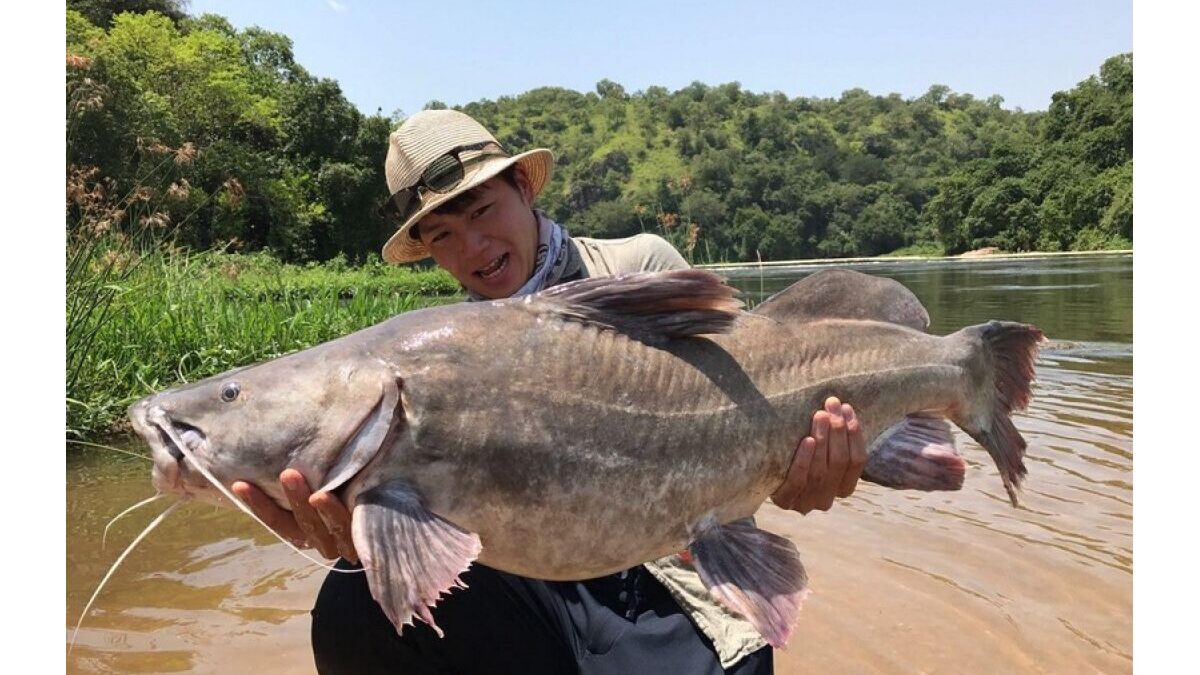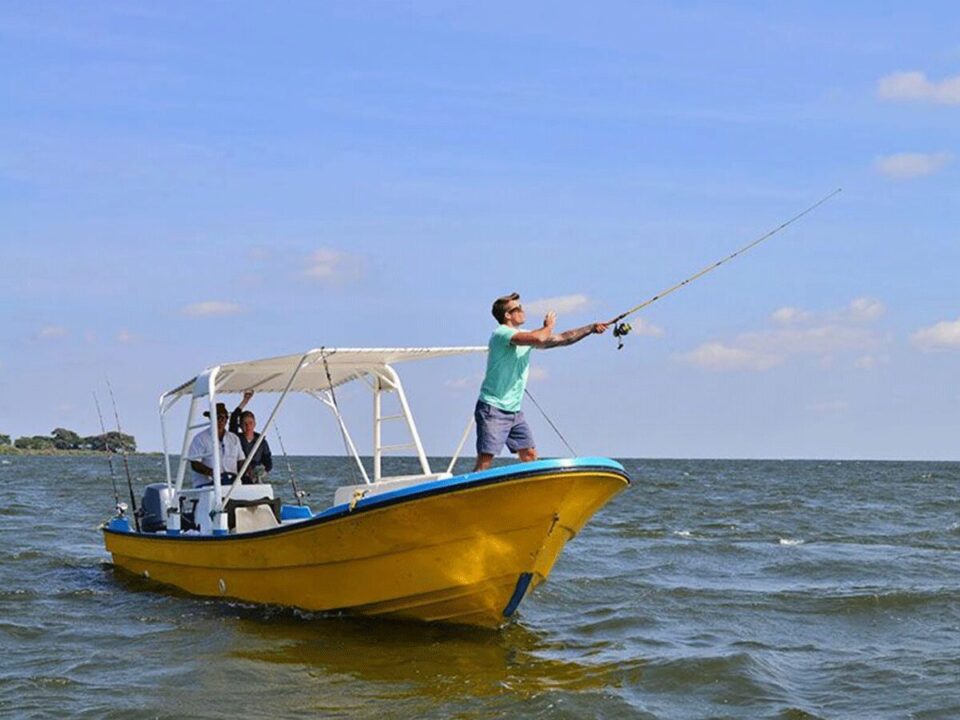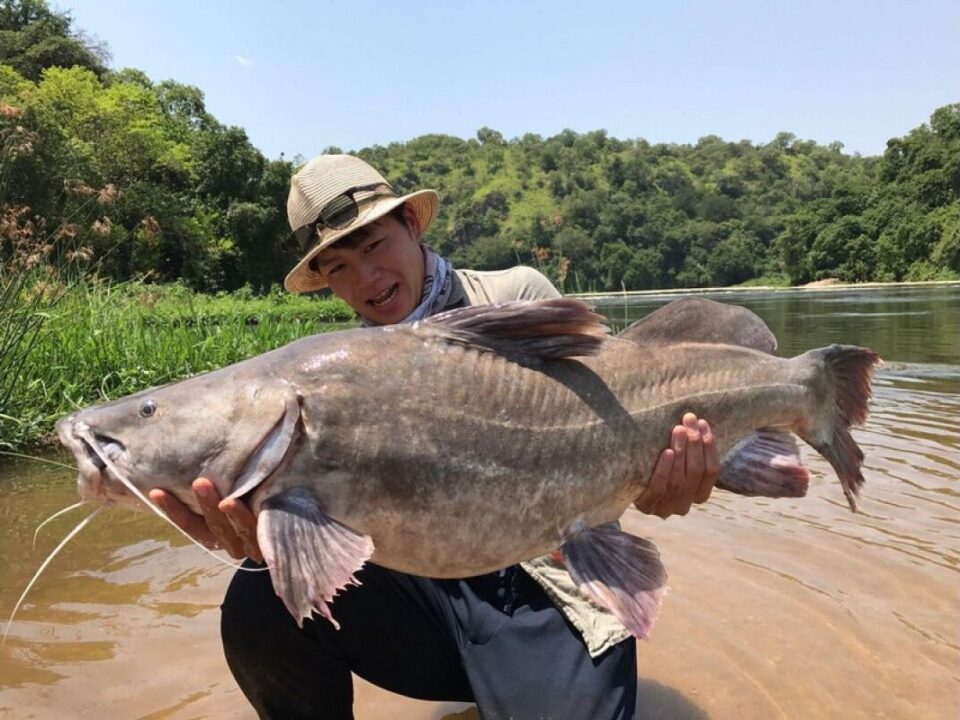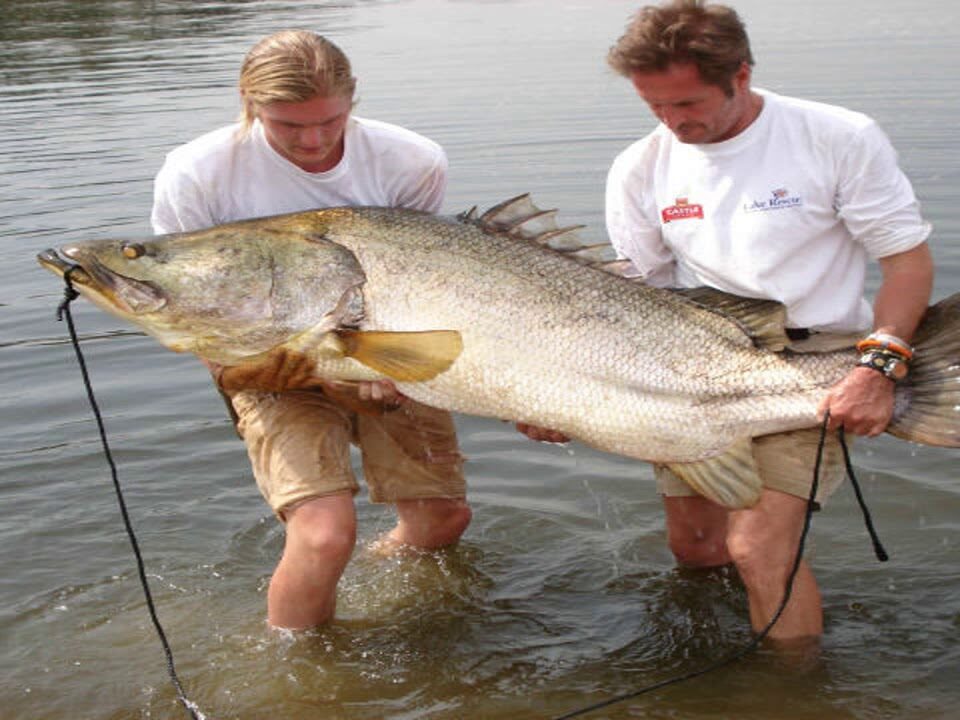Nile Perch Fish

Nile Perch Fishing Boat
February 3, 2024
Obtain a Fishing Permits in Uganda
February 3, 2024Unveiling the Nile Perch Fish: African Fishing Safaris in Uganda – Pursuing Nile Perch on Lake Victoria & Murchison Falls National Park
The Nile perch, scientifically known as the African snook or the Victoria perch, stands as a prominent freshwater fish within the family Latidae of the order Perciformes. This species gracefully spans the waters of various African freshwater habitats, flourishing in the intricate network of small rivers connecting lakes. Originating from the Congo basin, Nile, Senegal, Niger, Lake Chad, Volta, Lake Turkana, and other river basins, it has also found its way into the waters of Lake Maryrut in Egypt and Lake Nasser.
Historical Odyssey in Lake Victoria:
In the 1950s, the British introduced the Nile perch into Lake Victoria with the intent to bolster Uganda’s fishing industry. However, this seemingly beneficial move unwittingly triggered a cascade effect. The voracious appetite of the Nile perch led to a sharp decline in indigenous fish species within Lake Victoria, reshaping the ecological dynamics of the lake.
Economic Significance:
The Nile perch emerged not only as a culinary delight but also as a substantial economic asset for local communities and the country at large. A significant portion of Nile perch fillet is exported to Europe and other continents, contributing to the economic viability of Uganda.
Breeding Marvels:
The Nile perch exhibits remarkable reproductive prowess, with a single mature individual capable of laying up to a staggering fourteen million eggs. This prolific breeding behavior plays a crucial role in sustaining fish populations during the breeding season, particularly in areas with controlled fishing practices.
Impressive Dimensions:
The Nile perch is no stranger to grandeur, with recorded weights that defy conventional expectations. A colossal specimen weighing an astonishing 200 kg (500 pounds) was captured using traditional fishing nets. Notably, the realm of sport fishing witnessed a record-breaking feat with a Nile perch weighing 114 kgs (252 pounds) hooked in the Victoria Nile at Murchison Falls National Park. This remarkable achievement occurred using live bait strategically positioned below the rapids at the Gorge.
Culinary Predator:
Embracing a carnivorous lifestyle, Nile perch primarily preys on smaller fish, showcasing their prowess as apex predators in the freshwater ecosystem. Their diet also encompasses algae and decomposed plant matter found beneath the freshwater surface, making them susceptible to capture using artificial lures.
For those enticed by the allure of fishing safaris in Uganda, contact the seasoned fishing guides at Trek Africa Expeditions via email for comprehensive details and personalized assistance in planning an unforgettable African fishing expedition.




